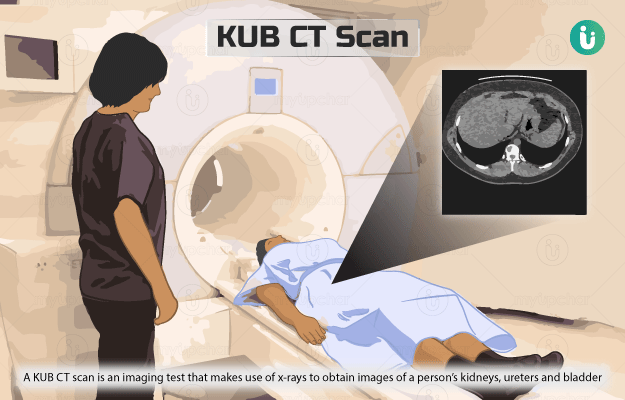What is a KUB CT scan?
A KUB CT scan is an imaging test that makes use of x-rays to obtain images of a person’s kidneys, ureters and bladder. The scan is mainly used for diagnosing urolithiasis or kidney/urinary tract stones. However, it may also be used for detecting other kidney-related problems.
Unlike an x-ray, a CT scan provides detailed images of the body from various different angles. These images can be seen on an attached computer screen.
To get a clearer picture of the area to be scanned, doctors sometimes give a contrast dye to the patient. The dye may be given intravenously or orally. It binds to body tissues, making them appear distinctly on the screen.
(Read more: KUB and PVR ultrasound)








































